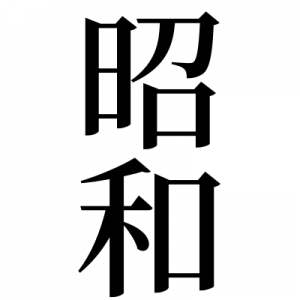As you may know, there are many Japanese words and expressions that are untranslatable in English, and arguably many of them are relevant to our Japanese unique mindsets. Among those words, this article introduces two essential Japanese words – 遠慮する and 空気を読む – to help you understand the Japanese culture more!
Table of Contents
1. 遠慮する (えんりょする、enryo suru)
Pronunciation
Definition
遠慮する (or just 遠慮 as a noun) basically means “to hold back or refrain from doing something out of consideration for others”. In other words, it means you put yourself into someone’s shoes and refrain from doing something for their benefits. Let me give you some examples: when your boss says that he/she will treat you at a restaurant, you may 遠慮する (“hold back”) and order a relatively cheap meal on the menu; when it turns out that you and your best friend are falling in love with the same person, you may 遠慮する (“hold back”) and let your friend have a date with him/her; and when your colleague says that you can text him/her whenever you’ve got some questions, you may still 遠慮する (“hold back”) doing so because actually he/she looks very busy. Interestingly, this word is also used when you prohibit something politely or decline an offer, as you can see in the 4th and 5th example sentences, respectively.
One thing you should know about this word is its reading/pronunciation; technically it reads ” えんりょ(enryo)” and that’s what you should write in your kanji exams, but when you pronounce it in speech, it’s more natural to say “えんりょう (enryou)”.
Example sentences
1. 今日は僕(ぼく)が君達(きみたち)におごるよ。遠慮はいらないからね。
Today I’ll treat you. You don’t need 遠慮.
2. 遠慮しないで、どんどん食(た)べて!
Don’t do 遠慮 and eat more and more (as you want)!
3. 遠慮して、一番(いちばん)安(やす)いのを注文(ちゅうもん)した
I did 遠慮 and ordered the cheapest one.
4. 熱(ねつ)がある方は、参加(さんか)をご遠慮ください
Please do 遠慮 (refrain from) joining (us) if you have a fever
5. 誠(まこと)にありがたいお誘(さそ)いですが 、今回(こんかい)はご遠慮させていただきたく思(おも)います
Although I truly appreciate your invitation, please allow me to hold back accepting it.
Related Word: 遠慮のかたまり
遠慮のかたまり, which literally means “hold-back lump”, is a deep and local slang word in the Kansai dialect. It describes a last piece of food on a plate shared by many people – the last portion that nobody reaches for because of 遠慮, e.g. a last slice of pizza. Although it’s not a very common word, you may try to use it when you’re talking with people from Kansai and impress them!
See also my previous blog post:
遠慮の塊 (Enryo no katamari): “Hesitation Lump” in Kansai-ben Slang
2. 空気を読む (くうきをよむ, kuuki wo yomu)
Pronunciation
Definition
空気を読む literally means “to read the air” and figuratively means “to follow the atmosphere, i.e., implicit thoughts shared among people around you”. In other words, it means doing what you’re implicitly expected to do, as to keep the harmony. Whether it’s good or bad, this behaviour can be very important in Japan, as numerous things can be expressed implicitly in Japanese. Here are some examples of the acts of “reading the air”:
- Pretend you didn’t see someone’s embarrassing mistakes/fiasco
- Do not interrupt your friend who is trying to ask someone out
- Follow the “suggestions” given by your boss
Example Sentences
1. 本当(ほんとう)は行きたくなかったけど、空気を読んで上司 (じょうし) の飲(の)み会(かい)に参加(さんか)した 。
Although I didn’t actually wanna go, I “read the air” and joined my boss’s drinking party.
2. 空気を読んで、彼に詳(くわ)しい理由(りゆう)を聞(き)かなかった
Reading the air, I did not ask him about the detailed reasons.
Related Word: KY (けーわい)
KY is an old-fashioned slang term that derives from an abbreviation for “空気の読めない” (Kuuki no Yomenai), meaning “cannot read the air”. Usually, it describes people or behaviour that are against the “air”. For instance, you might say “彼ってKYだよね” meaning “He is KY” if he always spoils a good mood like a party pooper. This slang word used to be very popular among young people about 10-15 years ago, and as I said, now it sounds a bit old-fashioned. However, you’d still see or hear this word at times on the Internet or in a casual conversation.
Example
You:「今週(こんしゅう)一緒(いっしょ)に映画(えいが)行かない?」
“Do you wanna go to the movies with me this week?”
Your Crush: 「いいよ!行こう行こう!」
“Yeah! Let’s go let’s go!”
KY popping up out of nowhere:「いいね!僕もいく!!」
“Awesome! I’ll go, too!!”


Leave a Reply